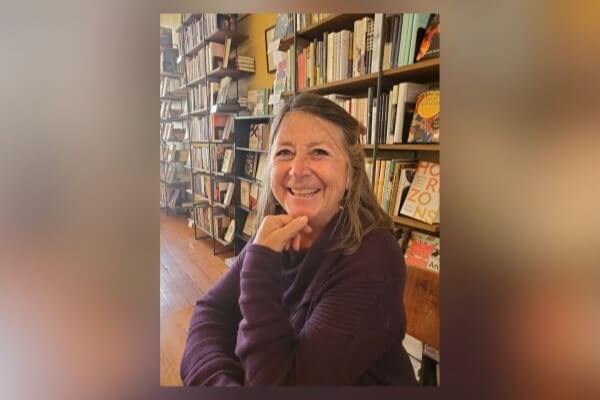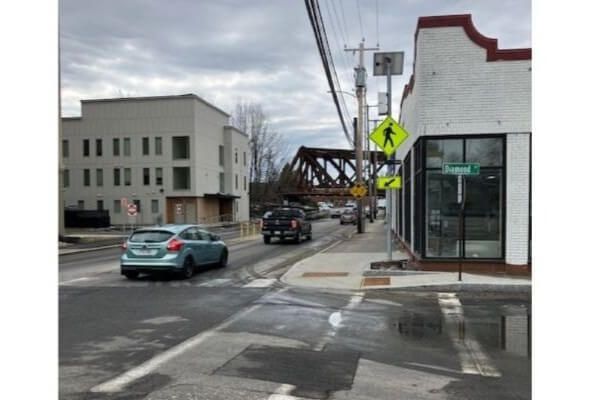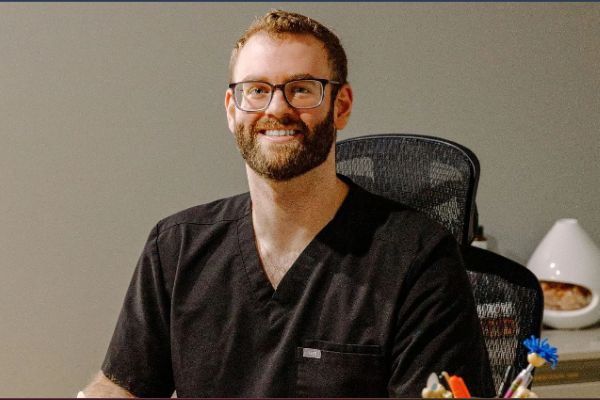Local Spotlight: Bonnie Pothier
 |
|
Bonnie Pothier PHOTO BY RANDY SEAVER
|
Mon, May 22, 2023 |
Bonnie Pothier has been breaking barriers since before breaking barriers was a thing. She was the first woman elected as mayor in Biddeford, but she also had to break a lot of other barriers and overcome many other challenges before then.
Whether as a school teacher, a downtown business owner or even as a member of the local Rotary club, Pothier has always been willing to swim upstream, letting nothing get in her way.
Born and raised in Biddeford, Pothier’s high school class was the first to graduate from Biddeford High School after St. Louis High School was closed in 1971. Bonita Pothier was the middle child of a large family that included her older sisters Charlene, twins Donna and Mona and two younger brothers John and Chuck. Pothier graduated from the University of Maine Farmington, earning a bachelor’s degree in education.
Today, she is one of five regional representatives for U.S. Senator Angus King, Jr., working in the Biddeford office that serves all of York County, a position she has held since King was first elected as senator in 2012. Recently, she announced that she will be retiring in just a few weeks.
“I have been working every summer since I was 11 years old, babysitting,” she said. “I finally decided that I wanted to just relax and enjoy the summer for once.”
Initially, it wasn’t your idea to run for mayor in 1989, was it?
“No, it wasn’t. (Laughs) My husband and I were just having dinner with some friends, including Mayor Mike Cantara. Mike said he would not be seeking another term because he wanted to run for the District Attorney seat. So, we all started talking about who would be a good fit to run for mayor. Mike looked over at me, and said you should run. I almost spilled my drink, and I burst out laughing. I was sure he was kidding. The room got quiet. Even my ex-husband thought it was a good idea. I was not at all convinced.
“Michael stopped by my house every night, working to convince me. At the time, I was the president of the chamber of commerce but I had no real political experience. I had a downtown business and young kids. I kept telling him I was too busy, but he persisted.
“I don’t think the city is ready to have a woman as its mayor,” I told him. “You’re putting your money on the wrong horse. Finally, I gave in. I told him I’ll run but you’re going to be sorry.”
You had a decisive win in the election, but your problems were just starting.
“Oh you bet. (Laughs) There were a lot of people who were very uncomfortable with the concept of a woman in power. Also, I was the first Franco-American to be become president of the Chamber, so it wasn’t just my gender that bothered a lot people. When I marched in my first La Kermesse parade as mayor, I brought my children along to march with me.
“Over the next few days, there were lots of angry letters to the editor published in the Journal [Tribune]. People said it wasn’t appropriate for the mayor to be walking in the parade with her children. Others criticized my hairstyle.
“All that aside, being the mayor of Biddeford was one of the best jobs I’ve ever had. It was a fascinating experience.”
But a patriarchal sentiment extended beyond City Hall, right?
“Oh yes, I remember trying to join the Biddeford Rotary Club and [Richard] Dick Martin said there will be women in the Rotary Club over my dead body. That’s when the Saco Bay Rotary Club was formed. Dick and I came to a very good place of mutual respect. We worked closely together on the design of the new elementary school, MERC and the sewer treatment plant. He was an engineer by trade and he was appointed to the council when Tiny Frechette died.”
You were criticized for trying to work in a “man’s world” and how could you know anything about culverts and road repairs.
“It was, I think a pivotal time for our city. A lot of people simply couldn’t understand why I wanted to do it, that I should just stay home, mind my own business and take care of my children. Back then, there was no city manager and people had a lot of doubts about department heads reporting to a woman.”
Back then, you were dealing with issues surrounding the MERC trash incinerator, needed sewer upgrades and an exodus of downtown merchants as the mills began to close. What do you think of Biddeford today?
“When I look around today, it’s so satisfying to see the vibrancy that is returning to our community. I believe things are always cyclical, but this is what I knew we would eventually become. I’m old enough to remember what it was like to be downtown in the 1960s. Honestly, the sidewalks were full of people shopping or going out to eat. You had a hard time walking from place to place because of the crowds.”
But you also saw the city’s downtown core begin to crumble in the 1980s.
“It was sad to watch so many things disappear. I remember when I wanted to open my business on Main Street in the early 1980s, so many people said I was crazy to be making an investment downtown. It was like we had all but given up on our downtown. The mills were closing and people began shopping at malls.”
Becoming mayor at that time, with a national recession and jobs leaving the area, what things do you consider were hallmarks of your one term as mayor?
“There were a lot of things, but one really just jumps out at me. Back then, there was no development west of the Turnpike intersection. The council had the foresight and vision to contemplate that area as a commercial growth district, and we went ahead and decided to extend the sewer and water lines there. Without that, you would have never seen all the development that has happened there since.”
How did you end up working for Senator King?
“You’re not going to believe this, but again it was nothing I ever contemplated or pursued. I was visiting a friend at the hospital and Senator King was there visiting the same person. I had known him for a long time. We just started chatting. He seemed interested by my experience as a senior manager at Key Bank, my time with the Chamber and other stuff. He actually pitched me the job, telling me you’ll never be bored working for me. Truer words have never been spoken (Laughs).
As a senate staff person, what’s your perspective on our national landscape?
“I feel like the tone of our political discourse has deteriorated. We have relaxed so many norms, so many people no longer practice good manners in public. The language is . . . well, shocking. There’s so much anger and distrust out there.”
What do you think is driving that anger?
“I think people are afraid, but nobody wants to admit they are afraid. We’ve given ourselves permission to just be constantly angry. It seems more acceptable to be angry than afraid. I think people want to be heard. And that’s what I admire most about Senator King. Despite what some people think, he really listens to people, even when they are being critical of him. He really goes the extra mile.”
The mayor’s seat in Biddeford is opening up this year. Want to run for your old job?
“Are you kidding me? (Laughs). No. Absolutely not. I want to spend more time with my grandchildren and go to the beach.”
What would be your advice to the next mayor?
“What you do can have lasting impressions long after you leave public office. It’s important for all of us, I think, to consider our ethics and to be careful about what message you want to send. Your words matter. I would also tell them to try to bridge the divide that is developing between older and newer residents. I am very concerned about gentrification and the way we are moving forward.
“I think what is happening downtown is fantastic. But we also have to be mindful. While we have many more young people discovering Biddeford and moving here into the old mill buildings, you don’t see families moving into those units. And I don’t think a community can thrive without families.”
Randy Seaver can be contacted at randy@randyseaver.com.















